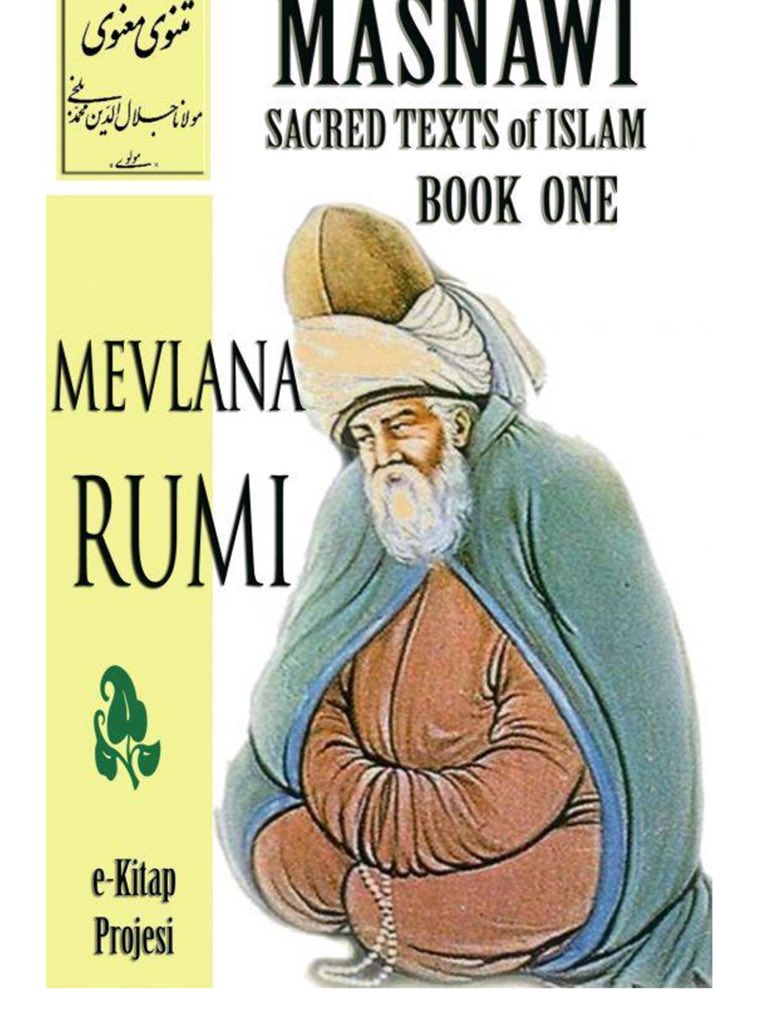Mathnawî-yé Ma`nawî," which means "Rhyming Couplets of Deep Spiritual Meaning."
Excerpt From: "Masnawi Sacred Texts of Islam: Book One" by Mevlana Rumi.
#Rumi
Excerpt From: "Masnawi Sacred Texts of Islam: Book One" by Mevlana Rumi.
Excerpt From: "Masnawi Sacred Texts of Islam: Book One" by Mevlana Rumi.
Masnawi Sacred Texts of Islam: Book One" by Mevlana Rumi.
"Masnawi Sacred Texts of Islam: Book One" by Mevlana Rumi.
The six books of the Masnavi can be divided into three groups of two because each pair is linked by a common theme:
Books 1 and 2: They “are principally concerned with the nafs, the lower carnal self, and its self-deception and evil tendencies.”
Excerpt From: "Masnawi Sacred Texts of Islam: Book One" by Mevlana Rumi.
All Excerpts From: "Masnawi Sacred Texts of Islam: Book One" by Mevlana Rumi.
"Masnawi Sacred Texts of Islam: Book One" by Mevlana Rumi.
Excerpt From: "Masnawi Sacred Texts of Islam: Book One" by Mevlana Rumi.
Excerpt From: "Masnawi Sacred Texts of Islam: Book One" by Mevlana Rumi.
Excerpt From: "Masnawi Sacred Texts of Islam: Book One" by Mevlana Rumi.
"Masnawi Sacred Texts of Islam: Book One" by Mevlana Rumi.
Why should I seek? I am the same as
He. His essence speaks through me.
I have been looking for myself!
Excerpt From: "Masnawi Sacred Texts of Islam: Book One"
His epitaph reads:
"When we are dead, seek not our tomb in the earth, but find it in the hearts of men."
Excerpt From: "Masnawi Sacred Texts of Islam: Book One" by Mevlana Rumi.
Excerpt














